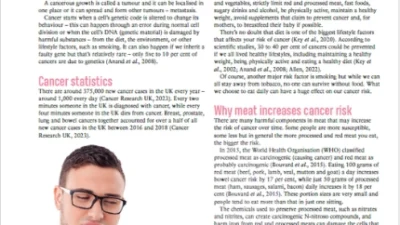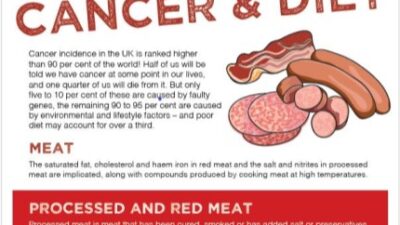The Vegan Advantage: Insights from 80,000 Adventists

A landmark study of nearly 80,000 people has found that vegetarians and vegans have a significantly lower risk of developing cancer compared to meat-eaters.
The research – part of the Adventist Health Study-2, which tracked participants in North America for over eight years – revealed that overall cancer rates were nine per cent lower in vegetarians and 24 per cent lower in vegans.
Two of the most common cancers, breast and prostate, showed striking differences. Among vegans, the risk of breast cancer was 31 per cent lower in younger women (age 65) and 26 per cent lower in older women (age 85), compared to meat-eaters. For prostate cancer, younger vegan men had a 43 per cent lower risk, while no significant difference was seen in older age groups.
For other cancers – including stomach, pancreatic, kidney, melanoma and lymphoma – the study found an 18 per cent lower risk in vegetarians and 23 per cent lower risk in vegans.
Adventists made an ideal group for nutritional research as they tend to share lifestyle habits – including avoiding smoking and heavy drinking – but follow very different diets. This allowed researchers to observe the impact of plant-based eating on long-term health.
Why the difference?
Vegans typically consume more fruit, vegetables, wholegrains, pulses and fibre-rich foods – all of which are linked to reduced inflammation, better gut health and protection against cell damage. These dietary factors may help explain their reduced cancer risk.
The authors also suggest the absence of dairy as a possible factor in lower risks for breast and prostate cancers among vegans – a finding not consistently seen in vegetarians.
Conversely, diets heavy in red and processed meats, sugary drinks and ultra-processed foods are thought to increase cancer risk. Compounds found in meat, such as haem iron, nitrates, nitrites and certain chemicals produced during cooking, have all been linked to higher rates of bowel and stomach cancers.
This is probably the only study with such a large number of vegetarians, and especially vegans, who the authors say have rarely been studied effectively for cancer incidence.
This study reinforces what many vegans already know: a well-planned vegan lifestyle not only aligns with ethical and environmental values but also supports long-term health.







